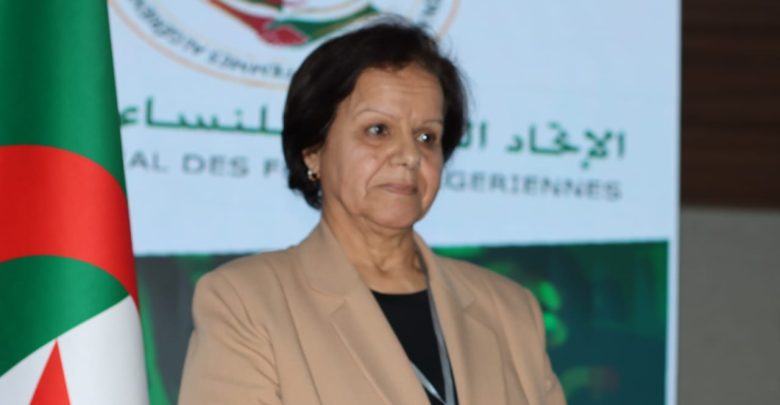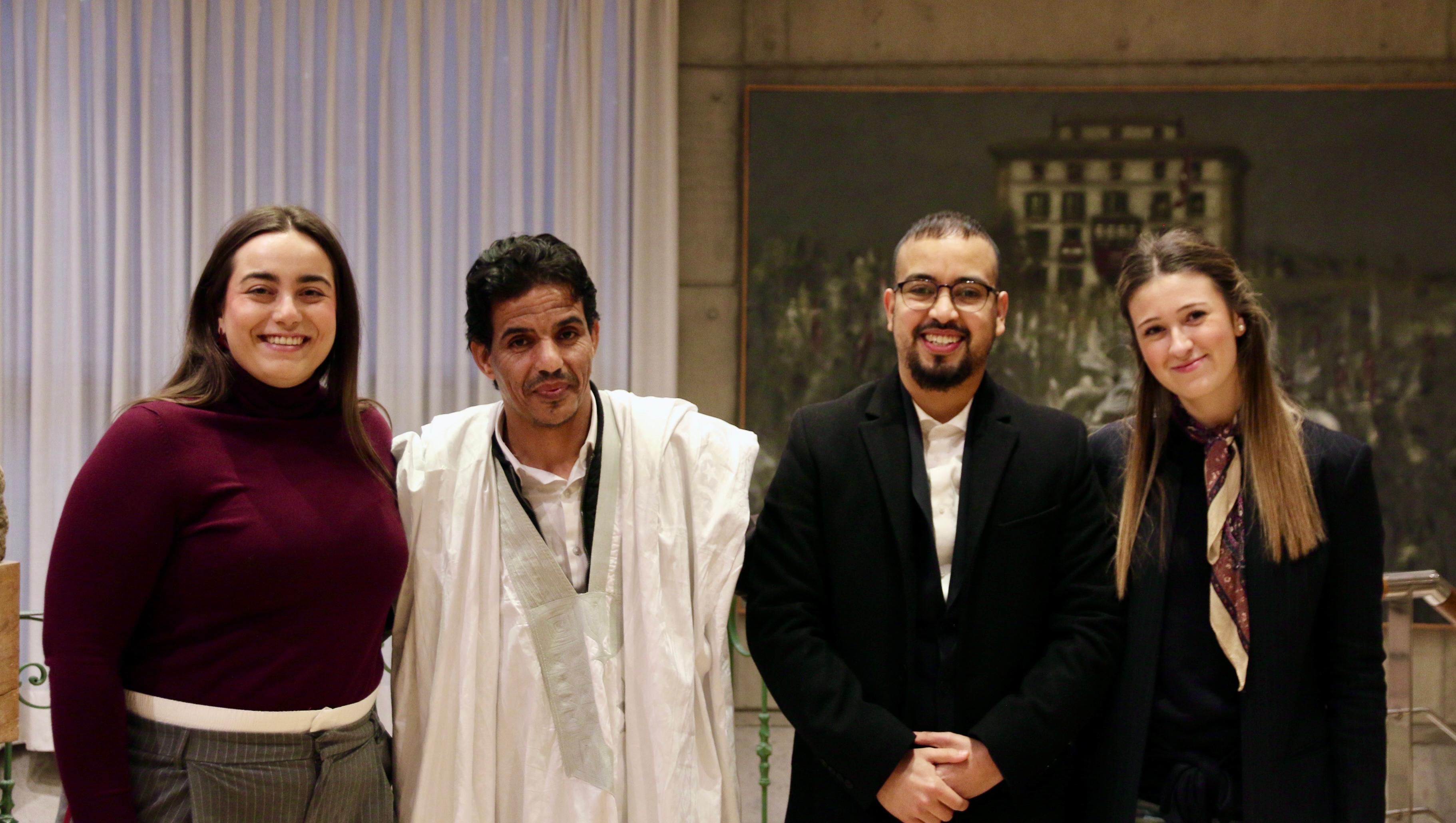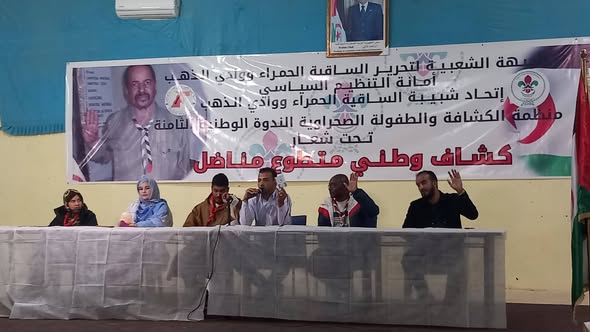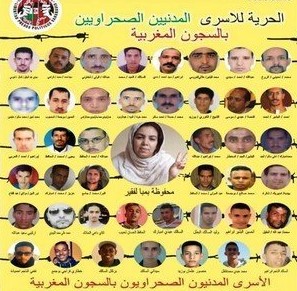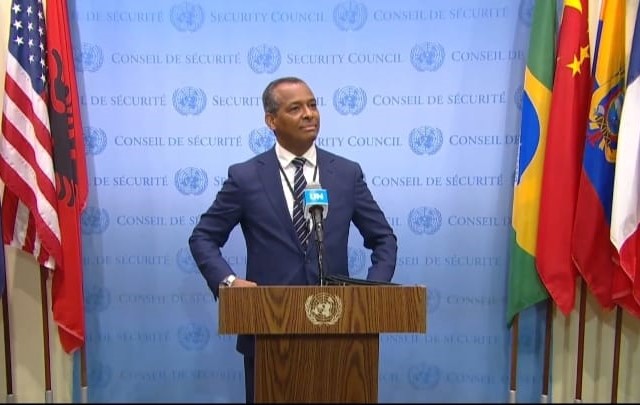
New York (United Nations), 3 July 2024 (SPS) - Dr Sidi Mohamed Omar, Member of the National Secretariat, Representative of the Frente POLISARIO at the United Nations and Coordinator with MINURSO, addressed today a letter to Ambassador Vassily Nebenzia, Permanent Representative of the Russian Federation to the United Nations and current President of the UN Security Council, in which he demonstrated with documented evidence the falsity of the claims made by the representative of the occupying state of Morocco before the Decolonisation Committee (C-24).
The following is the full text of the letter, a copy of which was obtained by the Sahrawi Press Service (SPS):
H.E. Mr Vassily Nebenzia
Permanent Representative of the Russian Federation to the United Nations
President of the Security Council
New York, 3 July 2024,
Your Excellency,
Allow me first to congratulate you on assuming the presidency of the Security Council for this month and to wish you every success in your mission.
In his statement before the latest substantive session of the Special Committee on the Situation with regard to the Implementation of the Declaration on the Granting of Independence to Colonial Countries and Peoples (C-24), the representative of Morocco, the occupying state, returned to doing what he does best, namely trying futilely to distort the most obvious facts and rehashing baseless claims regarding the question of Western Sahara.
The representative of the occupying state claimed falsely that “Morocco introduced to this Committee in 1963” the question of Western Sahara. There is considerable documented evidence to debunk this often-repeated fallacy. Suffice it to refer to the meeting of the Fourth Committee on 9 December 1963 (A/C.4/SR.1506) where the Moroccan representative firmly opposed the consideration of Western Sahara as a Non-Self-Governing Territory after Spain, the administering Power, had started to transmit information on the Territory in line with article 73(e) of the UN Charter.
The fact remains, however, that Morocco, the occupying state, as part of its expansionist policy, requested the inclusion in the agenda of the Fifteenth Session of the General Assembly of “the problem of Mauritania” in a letter (A/4445) addressed to the Secretary-General by the Moroccan foreign minister on 20 August 1960. In its “addition to the explanatory memorandum on the problem of Mauritania”, Morocco, the occupying state, asserted that “Mauritania, within the borders at present assigned it (sic) by France, has always been an integral part of [Morocco] national territory” (A/4445/Add.1, para. 1).
It is important in this context to refer to the statement (A/C.1/SR.1109) made, on 15 November 1960, by the Permanent Representative of France to the United Nations, Armand Bérard, during the Fifteenth Session of the General Assembly in which he defended Mauritania against the claims made by “the Moroccan expansionists” (para. 24). Of special significance is that, in his argumentation, the French Representative affirmed that both Mauritania and Western Sahara were never part of Morocco using some of the arguments that would be invoked by the International Court of Justice (ICJ) in 1975 to refute Morocco’s unfounded claims of sovereignty over Western Sahara.
The Permanent Representative of France to the United Nations stated on the record that: “Geographically, Mauritania in no sense constituted a single entity with Morocco. It had never had a common frontier with that country… Moreover, old maps had made the frontiers of Morocco coincide with the Oued Noun. Finally, the central Sherifian administration (Maghzen) itself had never exercised particular rights over any part of the vast areas to the south of the Oued Dra” (A/C.1/SR.1109, para. 21). For the record, both Oued Noun and Oued Dra, referred to by the French representative, are in Southern Morocco and these two areas are way above the border separating Morocco and Western Sahara.
The representative of Morocco, the occupying state, further claimed falsely that, in the advisory opinion of the ICJ of 1975, “the Court did justice to the Kingdom…, thus confirming the irrefutable sovereignty of Morocco over its Sahara.” This is a gross misrepresentation because the advisory opinion of the ICJ, issued on 16 October 1975, is there for everyone to see.
This is exactly what the conclusion of the ICJ advisory opinion says: “The Court’s conclusion is that the materials and information presented to it do not establish any tie of territorial sovereignty between the territory of Western Sahara and the Kingdom of Morocco or the Mauritanian entity. Thus the Court has not found legal ties of such a nature as might affect the application of General Assembly resolution 1514 (XV) in the decolonization of Western Sahara and, in particular, of the principle of self-determination through the free and genuine expression of the will of the peoples of the Territory” (ST/LEG/SER.F/1, p. 100).
The representative of Morocco, the occupying state, goes on with his futile attempts to distort the most obvious facts claiming falsely that the “Madrid Agreement” of 1975 “was endorsed (“entériné” in the original statement delivered in French) by the United Nations General Assembly in its resolution 3458 B of December 10, 1975”. Once again, this is one of his of often-repeated fallacies.
The General Assembly has never “endorsed” or “approved” the “Madrid Agreement” (officially known as the Declaration of Principles on Western Sahara) that was concluded by Spain with Mauritania and Morocco in Madrid on 14 November 1975. In its resolution 3458 B (XXX), referred to by the representative of the occupying state, the General Assembly merely “takes note of” the agreement. Those familiar with the United Nations terminology know that there is a significant difference between the General Assembly “taking note of” and “endorsing” something. Claiming that the two things are the same is an act of wilful misrepresentation.
Moreover, the General Assembly has never considered the “Madrid Agreement” to have affected the international status of Western Sahara in line with General Assembly resolution 742 (VIII) of 27 November 1953 and other relevant resolutions. The Legal Opinion issued by the Under-Secretary-General for Legal Affairs, the Legal Counsel, on 29 January 2002, at the request of the Security Council is also abundantly clear on this issue.
The UN Legal Counsel, Hans Corell, established that “The Madrid Agreement did not transfer sovereignty over the territory, nor did it confer upon any of the signatories the status of an administering Power—a status which Spain alone could not have unilaterally transferred. The transfer of administrative authority over the Territory to Morocco and Mauritania in 1975 did not affect the international status of Western Sahara as a Non-Self-Governing Territory” (S/2002/161, para. 6).
If the General Assembly had “endorsed” the “Madrid Agreement”, as the representative of the occupying state claims, why did the General Assembly itself deplore deeply “the continued occupation of Western Sahara by Morocco” in its resolutions 34/37 of 1979 and 35/19 of 1980? After all, why do the General Assembly and its subsidiary bodies as well as the Security Council remain seized of the question of Western Sahara “as an issue of decolonisation” in the case of the General Assembly and “as a matter of peace and security” in the case of the Security Council as reported by the Secretary-General (A/78/249, para. 2).
The representative of Morocco, the occupying state, has never been able to answer any of these straightforward questions because they lay bare the absurdity of the entire “argument” on the basis of which the occupying state has been trying futilely to “justify” its illegal occupation of Western Sahara, which has been going on since 1975.
The representative of the occupying state never misses an opportunity to declare his country’s opposition to the referendum that is the core of the mandate of the United Nations Mission for the Referendum in Western Sahara (MINURSO), which has been repeatedly extended by the Security Council in its relevant resolutions, including resolution 2703 (2023).
It is important to refer to the statement made by King Hassan II of Morocco, on 27 September 1983, before the Thirty-Eighth Session of the General Assembly when he stated on the record that: “Morocco tells you that it is ready for the referendum to take place tomorrow, if you wish it. Morocco is ready to grant all facilities to any observers from wherever they may come so that there may be a cease-fire and a just, equitable and true consultation. And, finally, Morocco solemnly undertakes to consider itself bound by the results of that referendum (A/38/PV.8, para. 26).
The representative of Morocco, the occupying state, cannot deny that his former king committed his country to the referendum and solemnly undertook to accept its results and that afterwards his country reneged on its commitment to the referendum, especially when the UN shared the provisional list of eligible voters with both parties in January 2000. Ultimately, after failing in its attempts to manipulate the referendum process, “Morocco has expressed unwillingness to go forward with the settlement plan” (S/2002/178, para. 48) as reported by the Secretary-General himself in 2002.
The representative of the occupying state should therefore stop trying to “justify” his country’s opposition to the referendum, which it had solemnly accepted, by advancing some unfounded “arguments” that fly in the face of obvious facts. The undeniable fact is that the self-determination referendum in Western Sahara has not yet been held solely because Morocco, the occupying state, fears the outcome of the vote. It is as simple as that.
Former U.S. Secretary of State, James A. Baker III, who served as the Personal Envoy for the Secretary-General for Western Sahara from 1997 to 2004, confirmed this fact in an interview with PBS on 19 August 2004, stating that “the closer we got to implementing the settlement plan… the more nervous I think the Moroccans got about whether they might not win that referendum”.
All in all, the above shows again that the representative of Morocco, the occupying state, continues to confuse Member States with his domestic audience that he is used to dupe with his mendacious propaganda and to impress with his “spectacular” battles against windmills.
I would be most grateful if you would bring the present letter to the attention of the members of the Security Council.
Please accept, Your Excellency, the assurances of my highest consideration.
Ambassador Sidi M. Omar,
Representative of the Frente POLISARIO at the United Nations and Coordinator with MINURSO.

